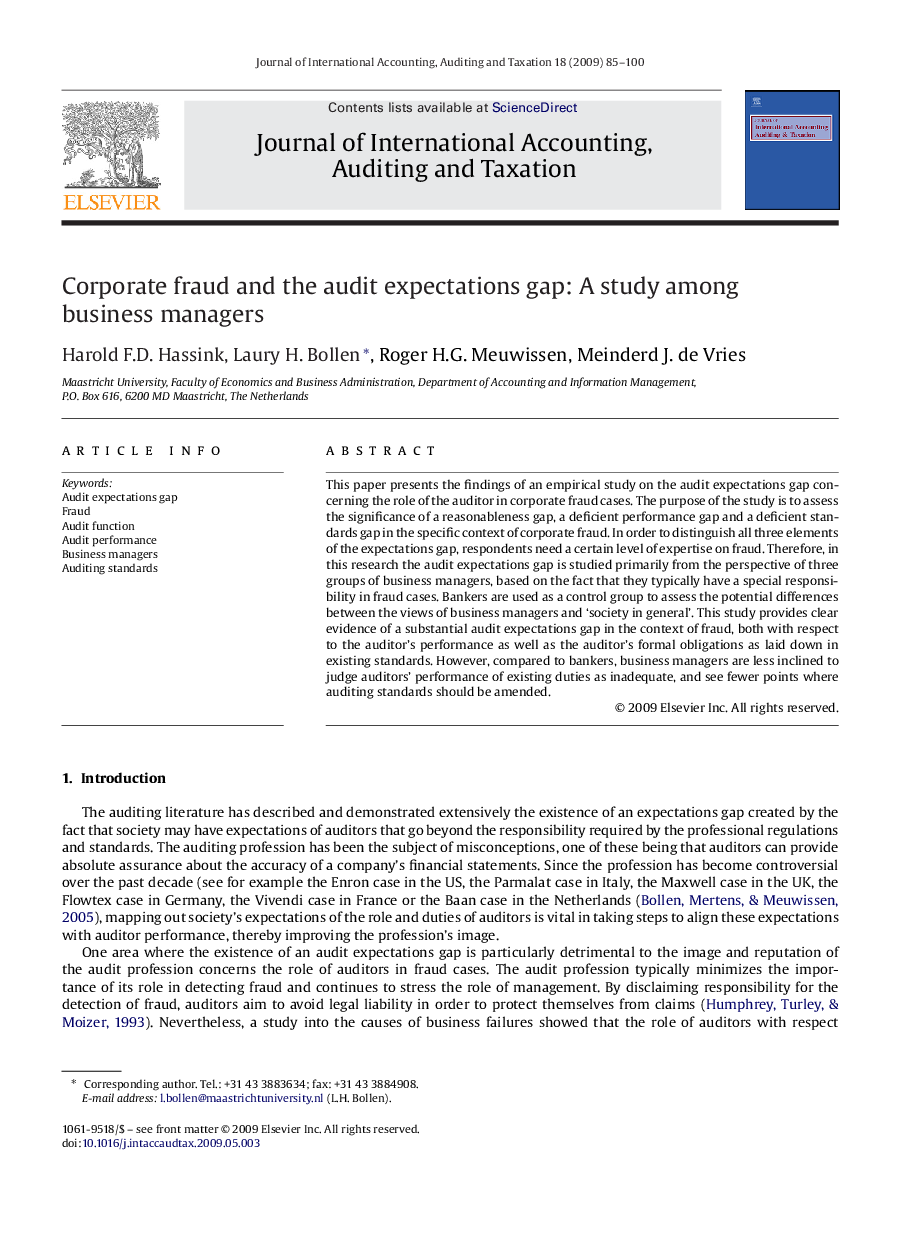| Article ID | Journal | Published Year | Pages | File Type |
|---|---|---|---|---|
| 1001287 | Journal of International Accounting, Auditing and Taxation | 2009 | 16 Pages |
This paper presents the findings of an empirical study on the audit expectations gap concerning the role of the auditor in corporate fraud cases. The purpose of the study is to assess the significance of a reasonableness gap, a deficient performance gap and a deficient standards gap in the specific context of corporate fraud. In order to distinguish all three elements of the expectations gap, respondents need a certain level of expertise on fraud. Therefore, in this research the audit expectations gap is studied primarily from the perspective of three groups of business managers, based on the fact that they typically have a special responsibility in fraud cases. Bankers are used as a control group to assess the potential differences between the views of business managers and ‘society in general’. This study provides clear evidence of a substantial audit expectations gap in the context of fraud, both with respect to the auditor's performance as well as the auditor's formal obligations as laid down in existing standards. However, compared to bankers, business managers are less inclined to judge auditors’ performance of existing duties as inadequate, and see fewer points where auditing standards should be amended.
